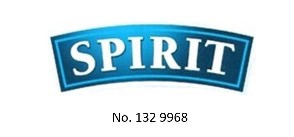An applicant filed to register the following international device mark SPIRIT for goods in Class 32:

The Hungarian Intellectual Property Office (HIPO) issued ex officio a provisional refusal to register the device mark in Hungary, holding that it was misleading because the word 'spirit' means alcohol, whereas the goods in Class 32 include mineral water, beer and soft drinks, which are not hard liquors. Thus, the applied-for mark could mislead consumers in respect of the type of products for sale.
The applicant asked the Metropolitan Tribunal to review the HIPO's decision on the grounds that the word 'spirit':
- is connected to relaxation;
- has a spiritual and subjective meaning; and
- is uncommon in everyday English.
The Metropolitan Tribunal rejected the request for review on the grounds that the device cannot be considered characteristic. The fact that alcohol is the third of many dictionary meanings of the word 'spirit' does not make it less likely that the average Hungarian consumer will recall this meaning before all others. If a word has several meanings, there is no certainty as to which meaning the average consumer would associate it with. Therefore, the Metropolitan Tribunal confirmed the HIPO's conclusion that the device mark SPIRIT was misleading (1 PK 24.877/2017).
Trademark law, as a division of civil law, was established in the 19th century and immediately introduced a prohibition on misleading marks – a provision which does not target marks, but their real effects.
The duty of national trademark authorities is to identify any potential deceptiveness during and after a mark's registration. A special feature of the prohibition on misleading character relates not to a mark itself, but rather to the list of goods for which it is seeking registration. Therefore, the word 'spirit' could be registered for sports articles or clothes, in respect of which it is not misleading, but could not be registered for mineral water. It may come as a surprise that this international device mark is protected in some countries (eg, Austria and the Czech Republic). However, national trademark authorities commonly make registration decisions independently of each other. In the above case, the Hungarian authorities' assessment was stricter than other national authorities.




